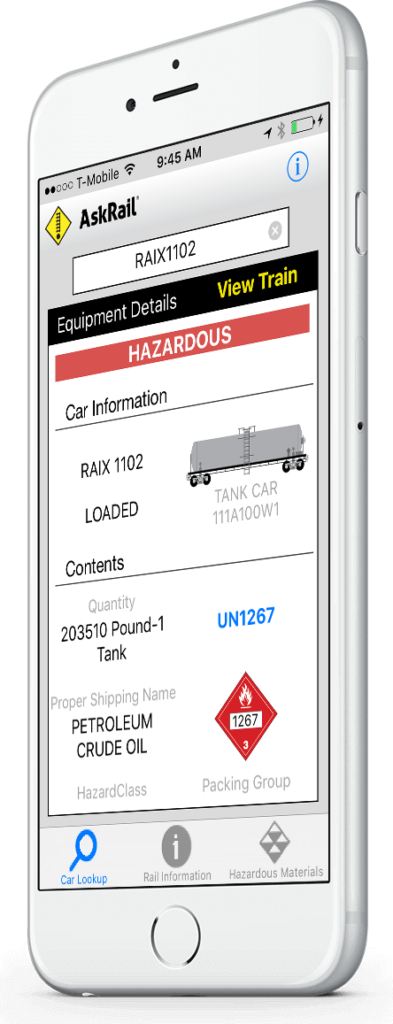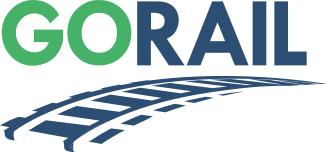
Washington, D.C. — U.S. freight railroads came together in 2014 to launch AskRail, an innovative mobile app that enables first responders to view the contents of a train or see if a railcar is carrying hazmat. Since then, nearly 50,000 emergency personnel in 49 states have downloaded the tool.
Now railroads are trying to expand access by encouraging Emergency Communications Centers (ECCs) to integrate AskRail data into their operations. A new training module specifically for ECCs as well as instructions on how to gain access and install AskRail on internet-ready devices is available at www.askrail.us.
“We wanted to be able to provide first responders real-time information, not just printed out copies and some of the old ways of doing things,” says Andy Elkins, director of hazmat compliance at the Association of American Railroads.
“Many firefighters and first responders across the country may never see a rail-related incident, but if it does occur, we want to make sure they have the best training—that they have successfully planned, trained for, and are able to mitigate these incidents.”
Over 620 freight railroads operate across 137,000 miles of track in the U.S., safely and efficiently connecting the economy. Rigorous operating standards alongside investment into the rail network has led to consistent safety gains—the last decade was the safest ever for railroads according to the Federal Railroad Administration. But incidents do still occur, and railroads have prioritized first responder training and coordination.
AskRail helps emergency personnel identify railcars carrying hazardous material such as petrochemicals as well as the location of key community assets—like schools, rivers, and heavily populated neighborhoods—that are more vulnerable to contamination. It also offers tailored guidance and connects to emergency services for all major Class I railroads and Amtrak.
Railroads also train about 20,000 state and local emergency responders every year on handling rail incidents. About 2,000 of these officials receive immersive training with full-scale scenarios at the world-class Security and Emergency Response Training Center (SERTC) in Pueblo, Colorado. SERTC is a member of the National Domestic Preparedness Consortium (NDPC), which fully funds local, state, tribal and territorial first responders to attend any of SERTC’s DHS/FEMA-certified courses. You can find the 2023 course schedule here.
Additionally, TRANSCAER (Transportation Community Awareness Emergency Response) is an outreach program covering North America. It focuses on assisting communities and training emergency responders to prepare for and respond to hazardous material transportation incidents. In-person training events as well as virtual assets can be found at www.transcaer.com.


